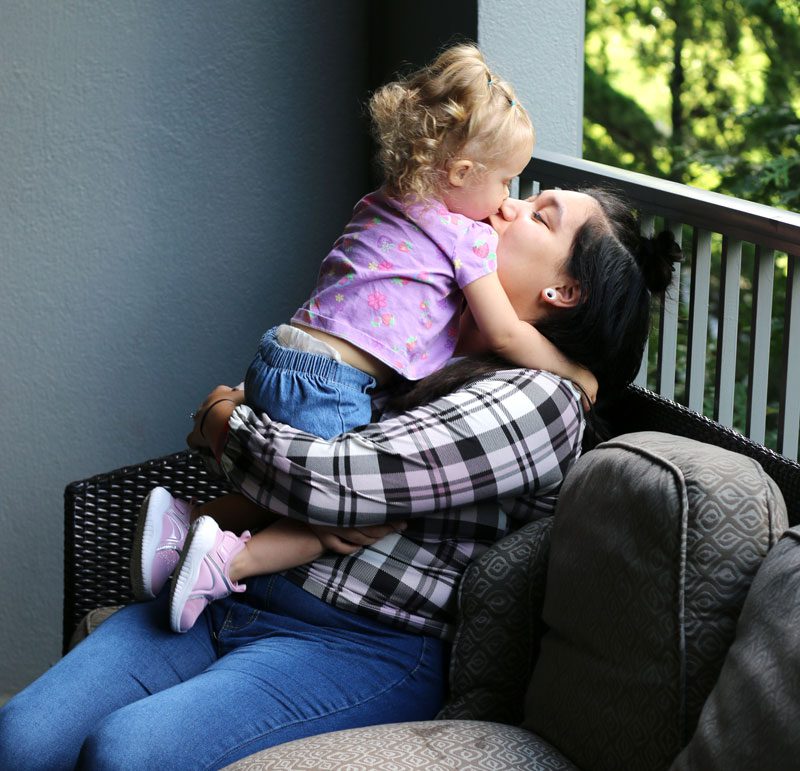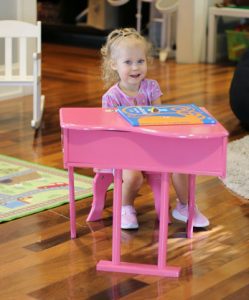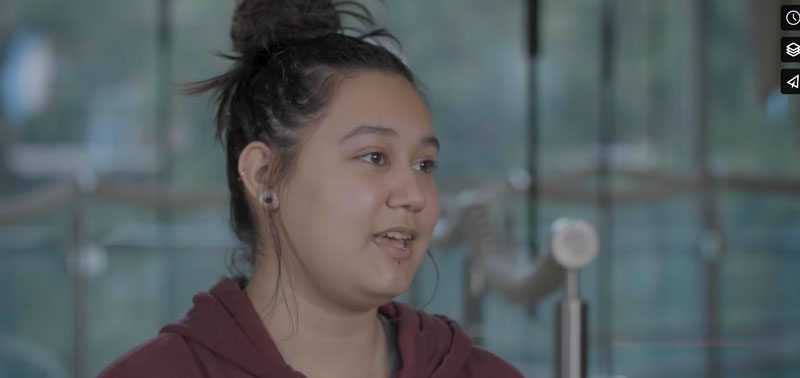
26 Oct The Stone Family says Count Us LUCKY

Little Ada Stone loves playing on the pink piano in our playroom at the Ronald McDonald House near Egleston.
Ana Stone recognized the signs. Her brother, grandfather, aunt, and cousin are on the autism spectrum.
Her daughter Ada, now 2, began showing classic signs around 9 months.
Late to walk, Ada had low muscle tone, repeated things endlessly, rocked back and forth, flapped her hands, disliked playing with children, and became so overwhelmed that she screamed for hours. Sometimes, she relieved frustration by intentionally hurting herself.
In addition, Ada was 100 percent dependent on a feeding tube for nourishment.
“Physically, nothing is wrong with her ability,” Ana says. “Mentally, she does not want to eat. Sensory sensitivity, another autism characteristic, is likely the reason.”
The Marcus Autism Center offered hope that Ada could learn to eat at least a little independently. After four weeks, Ada ate about 30 percent of her daily nutritional needs.
“The program has a high success rate,” Ana says. “Although I would love for her to be at least 50 percent off the feeding tube, the only thing I wanted from the program was for her not to be 100 percent dependent. She’s making so much progress. I have high hopes.”
During a museum tour, a chance encounter introduced Ana to the Marcus Autism Center. A woman noticed the Flying Squirrel feeding tube holder on Ada’s stroller and expressed how she wished she’d had one when her daughter was feeding tube dependent. “We became friends, and she told me about her daughter’s success with the Marcus Center program.”
Ada’s ability to participate depended upon her family’s acceptance at the Ronald McDonald House. Unfortunately, two months of hotel and restaurant bills would create an unsurmountable burden for them.
Ana is amazed by the Atlanta RMHC donors whose generosity has lifted her worry and made Ada’s treatment possible.
At the Marcus Center, Ada is weighed and has four carefully planned feeding sessions that take up their day.
Ada burns off energy in the Ronald McDonald House playroom, where she heads for the pink piano. “She’s obsessed with it,” says Ana, who suspects Ada also inherited the family’s musical talent.
Although experienced with autism, Ana admits becoming the mother of a child on the spectrum has been an adjustment and stressful, but she says she manages.
“You never expect your child to be sick when you give birth. As a mom that got me, but the Ronald McDonald House offers hope.”



